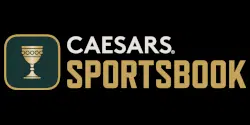Colorado Online Sports Betting
The Colorado online sports betting market provides bettors no shortage of choices when choosing where to bet and which promotions to claim.
Continue below for a detailed guide to legal Colorado online sportsbooks, the law, and critical information bettors need to know to bet online safely.
Colorado Sports Betting Apps




Online sports betting is legal in Colorado and regulated by the Division of Gaming, which ensures operator compliance, consumer protection, and integrity in wagering.
Twelve online sportsbook brands are operational in Colorado, and customers must be 21 or older to sign up for accounts.
Colorado currently hosts about a dozen licensed online sports betting apps, each tied to a master license held by a casino in Black Hawk, Central City, or Cripple Creek.
Operators must obtain a sports betting operator license or internet sports betting operator license from the Division of Gaming. Bettors can visit the Division’s website for an official list of licensed online sportsbooks in Colorado.
USGambling Recommends:
This is not an exhaustive list, and the roster of active operators can change. Bettors should always verify an operator’s license on the official Colorado Division of Gaming website before depositing funds.
Colorado Sports Betting Bonuses
Colorado sports betting bonuses offer new customers money, bonus bets or other benefits in return for signing up for an account.
Deposit match offers, first wager refund promos and even no-deposit bonuses are all common in the CO market thanks to state laws that are conducive to a competitive business environment.
Note: All bonuses are taxable as income if converted to cash winnings. Bettors should review house rules for expiration dates, minimum odds, and eligible markets.
Colorado Regulations on Bonuses
Regulations approved by the Division of Gaming following the passage of the CO sports betting law include provisions that govern advertising and bonus offers.
Sports betting bonuses must adhere to strict transparency rules to protect consumers. Operators cannot describe offers as “free” or “risk-free” if they require deposits, wagers, or other conditions that could result in the loss of funds.
Additionally, bonus terms must be clear, accurate, and prominently displayed, without restricting withdrawals of a bettor’s own deposits or winnings from non-bonus bets.
Sections 6.12 and 9.4 deal with truthful advertising and responsible advertising respectively.
6.12 Advertising
No licensee shall allow, conduct, or participate in any false or misleading advertising concerning its Sports Betting Operations.
9.4 Responsible advertising and promotions
(1) All offers and bonuses must:
(a) Include terms and conditions that are full, accurate, clear, concise, transparent, and do not contain misleading information;
(b) Have advertising materials that include any material terms and conditions for that offer or bonus and have those material terms in close proximity to the headline claim of the offer or bonus and in reasonably prominent size;
(c) Not be described as free unless they absolutely are free. If the customer has to risk or lose their own money or has conditions attached to their own money, then the offer or bonus must disclose those terms;
(d) Not be described as risk free if the customer needs to incur any loss or risk their own money to use or withdraw winnings from the risk free bet; and
(e) Not restrict the customer from withdrawing their own funds or withdrawing winnings from bets placed using their own funds.
Colorado Sports Betting Law
Online sports betting is authorized in Colorado under C.R.S. §§ 44-30-1501-1517.
Colorado sports betting law authorizes all standard types of wagers such as straight bets, parlays, props, futures, in-play betting and more.
Colorado betting sites may accept wagers on major leagues like the NFL, NBA, MLB, NHL, as well as college sports (with restrictions on prop bets), international events, and esports sanctioned by governing bodies. Wagers on high school sports and unsanctioned video games are prohibited.
There are three types of sports betting licenses in Colorado:
- Master License: Reserved for land-based casinos
- Sports Betting Operator: Physical retail sportsbook operator
- Online Sports Betting Operator: One online skin per land-based casino
To apply, casinos need to pay a $10,000 initial fee and a two-year $125,000 licensing fee. Any approved casino can then sign a deal with a land-based sportsbook or online betting site.
Legal Colorado betting sites pay a 10% tax on net proceeds (total wagers minus payouts, limited promotional deductions, and federal excise taxes).
The Colorado Division of Gaming, part of the Department of Revenue, serves as the primary regulatory body. Its key duties include:
- Issuing licenses to operators, vendors, and support personnel
- Enforcing rules on wager types, consumer protections, and responsible gambling
- Conducting audits and investigations into disputes or suspicious activity
- Collecting a 10% tax on net sports betting proceeds to fund water conservation projects, administrative costs, and responsible gambling initiatives.
Key Colorado Sports Betting Regulations
Regulations adopted by the Limited Casino Control Commission are outlined in the Code of Colorado Regulations (1 CCR 207-2) and enforced by the Division of Gaming.
Operators must submit internal controls for approval, conduct annual security assessments, and maintain reserves to cover payouts.
- Minimum Age: Bettors must be 21 or older; operators verify age during account creation and deny access to those under 21.
- Location Requirements: Wagers must originate and be received within Colorado; apps use approved geofencing technology to block out-of-state access and monitor sessions.
- Account Rules: One active account per patron; multi-factor authentication for changes; secure storage of personal/financial data; funding via cash, cards, ACH, or approved methods; dormant accounts closed with refunds.
- Prohibited Wagers: No bets on high school sports, unsanctioned esports/video games, or prop bets on individual college athletes. Sports governing bodies can request restrictions if wagers undermine integrity.
- Consumer Protections: House rules must detail wager settlement, cancellations for errors, and maximum payouts; disputes over $1,250 can be appealed to the Division; unalterable wager receipts issued; confidential handling of suspicious activity.
- Responsible Gambling: Colorado betting apps must display help resources (e.g., 1-800-GAMBLER); self-exclusion programs; patron-set limits on deposits/time/wagers; prohibition on betting by athletes, coaches, refs, or insiders.
- Tax and Reporting: Winnings over $600 may require IRS reporting; operators deduct limited bonus bets from taxable proceeds
- Other: Sportsbooks may not extend credit to customers; operators must retain logs of all disputes and unusual activity for 12 months
Violations can result in license suspension, fines, or criminal charges under CRS 18-10-103.
Colorado Sports Betting Timeline
Colorado legalized sports betting through a two-part process. First, the state legislature and governor approved HB19-1327 to initiate a constitutional referendum.
The passage of HB19-1327 allowed the state to proceed with a public referendum that would give voters the choice to approve sports betting. Proposition DD was added to the 2019 November ballot and essentially asked voters if they would like to authorize sports betting through licensed casinos.
Voters approved the measure by a slim margin to officially legalize sports betting in Colorado. The passage of Prop DD prompted the Colorado Limited Gaming Control Commission and the Colorado Division of Gaming to begin the process of adopting regulations and licensing requirements in anticipation of a May 2020 launch.
Full Timeline:
- May 2018: US Supreme Court overturns PASPA, allowing states to legalize sports betting.
- May 2019: Colorado General Assembly passes HB19-1327, authorizing sports betting subject to voter approval and establishing a 10% tax on net proceeds.
- November 2019: Voters narrowly approve Proposition DD (51% yes), legalizing sports betting and directing tax revenue to water projects.
- April 2020: Division of Gaming approves initial rules and fees; stakeholder input shapes regulations.
- May 1, 2020: Online and retail sports betting launches with first operators like DraftKings and FanDuel.
- 2021-2022: Market expands to over a dozen apps; rules updated for geofencing, self-exclusion, and integrity monitoring.
- January 2023: Bonus bet deduction limits begin phasing down from 2.5%.
- May 2024: Governor signs HB24-1436, referring a November 2024 ballot measure to retain all tax revenue above $29 million for water projects instead of refunding to casinos.
